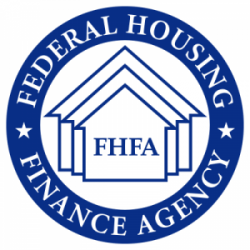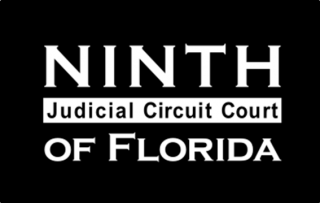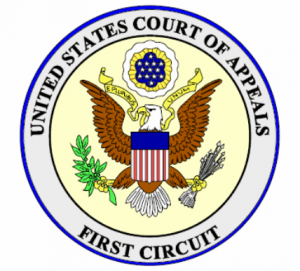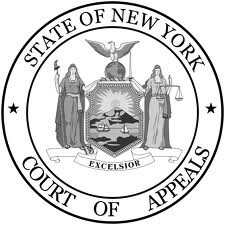The U.S. District Court for the District of Nevada recently held that the federal Housing Economic Recovery Act of 2008 (HERA) requires super-priority lien holders to obtain consent from the Federal Housing Finance Agency (FHFA) prior to foreclosing on any liens on properties where the FHFA is acting as conservator. A copy of the opinion is available at: Link to Opinion. In 2007, two borrowers obtained a $105,700 loan on a property located in Las Vegas that was secured by a Deed of Trust on the property. The property was also part of a homeowners association (HOA) and subject to…
Posts published in “Mortgage Banking Foreclosure Law”
Mortgage Banking Foreclosure Law
The Ninth Judicial Circuit Court of Florida recently granted summary judgment to an insured against a title insurer after the title insurer failed to except a title defect from coverage under a policy. In so ruling, the Court held that breaching a policy of title insurance exposes the title company to extra-contractual liability beyond the policy’s limits. A copy of the opinion is available here: Link to Opinion. In this case, the insured had purchased 253 acres of property in Florida. The title insurer issued a policy that failed to note a recorded mobile home plat that appeared to cover…
The Appellate Court of Illinois, Third District, recently affirmed a grant of summary judgment of foreclosure in favor of a mortgagee in spite of an inconsistency between the copy of the note attached to the complaint and the note introduced into evidence. A copy of the opinion is available at: Link to Opinion. The foreclosing plaintiff mortgagee originally attached to its complaint a note that had a stamp stating it was a “true and correct copy of the original.” This copy of the note did not have any indorsement. However, at summary judgment, the plaintiff introduced the original note. Unlike…
The U.S. Court of Appeals for the First Circuit recently affirmed the dismissal of two mortgagors’ quiet title allegations against a mortgagee, holding that the plaintiff mortgagors could not assert a quiet title claim under Rhode Island law against the mortgagee defendants because Rhode Island is a title theory state, and the mortgagors’ equitable interest in title to the property at issue was not adverse to the mortgagee’s legal interest in title. A copy of the opinion is available at: Link to Opinion. The plaintiff mortgagors (one of whom is an attorney) claimed uncertainty as to which entity held an…
The New York Court of Appeals recently confirmed that, under New York state law, a loan servicer had standing to foreclose on delinquent borrowers based only upon the servicer’s demonstrated possession of the note evidencing the borrowers’ loan since the time the foreclosure action was filed. The Court also held that, although the loan servicer’s affidavit set out sufficient facts to show exclusive possession and control of the note prior to the date the foreclosure action was filed, the affidavit would have been better and clearer if it had also included facts describing how the servicer came into possession of…
The Annual Consumer Financial Services Conference organized by The Conference on Consumer Finance Law, and co-sponsored by the Loyola University Chicago School of Law, Maurice Wutscher and other law firms, will be held Nov. 19-20, in Chicago. The conference will include presentations by some 45 of the best and brightest speakers and practitioners in the country, on the following topics: TCPA: The New FCC Order Fair Lending and HMDA CFPB Administrative Appeals Arbitration Developments UDAAP Cybersecurity CFPB Regulation of Non-Bank Auto Finance TRID: Issues and Implementation Flood and Lender-Placed Insurance Mortgage Servicing and Bankruptcy State Regulation of Debt Collection/Debt Buyers Credit…
The Court of Appeal of the State of California, Second Appellate District, recently reversed a trial court’s dismissal of a complaint alleging a servicer violated California’s Homeowner Bill of Rights by proceeding with a trustee’s sale when the servicer and the borrowers were allegedly exploring a loan modification. In so ruling, the Appellate Court made two key holdings: First, the Appellate Court held that a borrower does not need to tender the balance due prior to instituting a suit for alleged violation of the HBOR. Second, the Appellate Court also held that a borrower’s failure to timely provide the documents…
In a 5-4 decision yesterday, the U.S. Supreme Court held that disparate impact claims are cognizable under the federal Fair Housing Act (FHA), but put in place various limits and safeguards. A copy of the opinion is available at: Link to Opinion. The underlying lawsuit involved a dispute between a Texas-based nonprofit that assists low-income families with finding affordable housing and a Texas state department that distributes tax credits to developers. The nonprofit sued the department under a disparate impact theory, claiming that the department violated the FHA because it had allocated too many tax credits to housing in predominantly minority inner-city…
The Court of Appeal of the State of California, Third District, recently vacated a trial court order denying two borrowers’ motion for attorney fees and costs pursuant to Cal. Civ. Code § 2924.12 after they obtained a preliminary injunction as to the trustee’s sale of their home due to alleged “dual tracking” violations. A copy of the opinion is available at: Link to Opinion. Two borrowers filed an ex parte application for a temporary restraining order (“TRO”) to prevent the trustee’s sale of their residence, as well as a civil complaint against the real parties in interest. The trial court…
As referenced in our prior update, the federal Consumer Financial Protection Bureau (CFPB) issued a proposed rule to change the effective date for the “Know Before You Owe” TILA-RESPA Integrated Disclosure rule to October 3, 2015. A copy of the proposed rule and request for public comment is available at: Click Here The CFPB previously indicated the effective date would be delayed to Oct. 1, 2015. The CFPB stated that it “is proposing a new effective date of Saturday, October 3,” explaining that “scheduling the effective date on a Saturday may facilitate implementation by giving industry time over the weekend…
Providing statements of the amount due, or of the amount required to cure a default – such as in Notices of Intention to Foreclose, periodic statements, and the like — has become risky for mortgage servicers under a recent ruling from the U.S. Court of Appeals for the Third Circuit. The ruling, Kaymark v. Bank of America, involved a foreclosure complaint, which included projected fees and costs that had not yet been incurred at the time the complaint was filed. Ultimately the costs were incurred, but the court found that the foreclosure complaint’s inclusion of the projected fees and costs in the amounts…
The Illinois Appellate Court, First District, recently affirmed a trial court’s final order in a foreclosure, refusing to vacate summary judgment in favor of the mortgagee, even though the notice of the relevant motions was mailed directly to the borrowers and not their attorney of record, and was originally missing the time of the hearing and the date it was mailed, and even though the borrowers argued that the trial court used the wrong interest rate to calculate the amounts due at sale. In so ruling, the Appellate Court held that the Illinois statutory rate of 9% interest is to…










